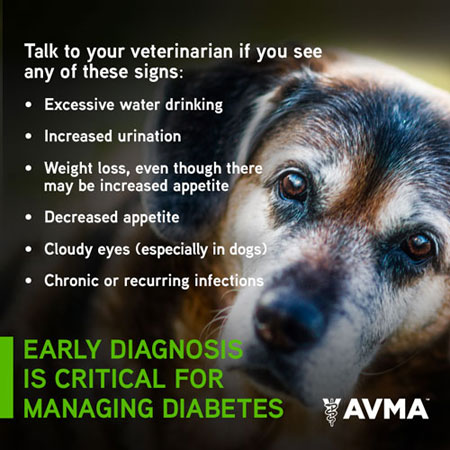
Diabetic dog with diarrhea and vomiting. 5 Distemper neurological diseases kidney disease and seizure disorders as well as many many more diseases can all cause shaking in dogs.

A few of the more common causes of shaking shivering trembling or tremors in dogs include.
What causes shivering in a diabetic dog. Causes of Shaking in Dogs Fever or high-body temperature hyperthermia Poisoning Feeling too cold hypothermia Upset stomach vomiting or diarrhea Adrenaline rush from excitement or fear Generalized Tremor Syndrome GTS Hypoglycemia low glucose levels Canine Distemper Epilepsy Old Age Feeling Pain Kidney Disease Endocrine problems. There are many causes of shivering in dogs that may resemble the tremors of hypoglycemia. The best way to distinguish between hypoglycemic tremors and other causes of shivering is to check blood glucose levels.
The most common complication of diabetes in dogs is cataract formation. Another complication in cats and very rarely dogs is polyneuropathy. A few of the more common causes of shaking shivering trembling or tremors in dogs include.
Caused by a virus canine distemper most often occurs in. There are a lot of scary diseases out there that can cause your dog to shake. 5 Distemper neurological diseases kidney disease and seizure disorders as well as many many more diseases can all cause shaking in dogs.
Keep careful track of any other changes in your dogs behavior activity level and appetite. The most common cause of hypoglycemia in diabetic dogs is an accidental overdose of the animals insulin. In other words hypoglycemia is the result and sigh of too much insulin in the body and happens if you give a diabetic dog too much insulin.
Steroids cause insulin resistance. Some diabetic pets actually became diabetic secondary to having Cushings disease from the insulin resistance caused by steroids. It is difficult to regulate a diabetic pet that is also Cushingoid.
There are a few things you should know about this disease if your pet is diabetic. Hypoglycemia in a diabetic is often referred to as insulin reaction. In diabetes mellitus hypoglycemia is the condition of having a glucoseblood sugar level that is too low to effectively fuel the bodys bloodcells usually resulting from to much insulin circulating in the bloodstream.
A good range of blood sugar in an animal is approximately. The shivering has happened before three times in perhaps 8 years. Id never had the hypo before or perhaps Id slept through one.
On both previous occasions I tested a short while afterwards was 5 or 6ish. Ive been doing this diabetes thing for nearly 20 years Type 1 but I cant work it out. Ataxia - usually lack of muscular coordination but maybe changes in head and neck movements.
Owners of diabetic dogs have also reported observing these signs. Sweating - check the nose and the paw pads. If it is out of the ordinary even a small amount of exercise can cause hypoglycemia.
Read some personal experiences from. Frequent urination diabetic dogs drink a lot and pee a lot. Hunger your dog will be extra hungry because his cells are screaming for glucose.
Weight loss because the cells cant use sugar without insulin your dog will start burning off tissue to produce more glucose and hell lose weight. Diabetic dog with diarrhea and vomiting. When your diabetic dog has diarrhea and vomiting take it as an emergency.
Diarrhea with vomiting can be a symptom that your diabetic dog has Ketoacidosis which is usually the last stage of diabetes. In ketoacidosis the body starts using fats and proteins instead of glucose. The most common cause of hypoglycemia in diabetic dogs is an accidental overdose of the animals insulin.
Additionally low blood sugar may occur due to poor appetite a missed meal or if the dog vomited after his or her mealOccasionally a dogs insulin dosage needs to be changed throughout his or her life which is common for dogs whose exercise. Dogs with this condition have extremely diluted urine. This can be caused by one of two things.
Central Diabetes Insipidus or Nephrogenic Diabetes Insipidus. Diabetes insipidus is considered idiopathic meaning there is no known cause. However there may be a link to secondary headbrain trauma.
If your dog shivers or shakes for no reason this could be a sign of hypoglycemia which is low blood sugar and this can also be as dangerous as high blood sugar for your dog. Repeated urinary tract infections can also be a sign of diabetes. Pets may shiver or shake for many reasonspain fear anxiety nerves or simply being too cold.
There is even an endocrine disorder called Addisons disease which can cause excessive shivering as well. We often see dogs shiver and shake during thunderstorms or July 4th fireworks. Some will even respond this way if theres a lot of.
What causes canine diabetes. Although there are no certain causes for canine diabetes some factors make it more likely. Gender un-spayed female dogs are most likely to get diabetes.
Age middle-aged to. Diabetes is a chronic disease that can affect dogs and cats and other animals including apes pigs and horses as well as humans. Although diabetes cant be cured it can be managed very.
A dog with severe nausea may shiver. Potential causes of nausea include car sickness ingesting toxic plants or substances kidney or liver disease or over- or undereating. Some inflammatory brain diseases or conditions will cause dogs to shake as will a seizure disorder and chronic kidney failure.
Introduction - Veterinary Partner - VIN. Diabetes mellitus is a metabolic disease involving the bodys handling of sugar. Learn about some of the basics of this common hormone problem of dogs and cats.
Shivering in dogs is natural and quite widespread but if your pup is still shaking after warming up keep on reading to learn about other reasons. Anxiety Shivering is another common sign of anxiety which can happen if your dog is adjusting to a new environment meeting new people or dealing with other stressful situations.